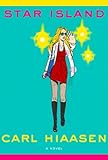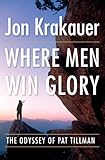Steven Johnson writes about great subjects. “Where Good Ideas Come From: The Natural History of Innovation” is a very good subject as it is about the patterns that underlie greatness.
Steven identifies a few key patterns that come up again and again with good ideas.
The adjacent possible – Good ideas are of their time, not ahead of their time. They are an extension of what is already around us. You see this in how great ideas seem to spring up from multiple people all at the same time in simultaneous invention. The example of a great idea failing because it is too far ahead of its time is Lord Babbage’s Analytical Engine – the idea was sound, but the technology of the world couldn’t put it into place.
The Liquid network. Ideas get better when they rub against each other – the reason so many good ideas come out of places like NYC and SF and the coffee houses of the renaissance isn’t that these places are magical or that the people there are smarter. People are talking to each other more in those places. There are more informal networks and ideas being passed back and forth among multiple disciplines.
The Slow Hunch: Sometimes ideas have to bake. We all applaud the dream that James Watson of the double helix structure of DNA. It fits our Romantic notion of great discovery happening as a flash of genius. The reality is that you need to study for ten years, immersing yourself in a subject, nursing along a hunch, before the flash of insight can come. You don’t know what is important until later, so it is important to keep track of those little hunches for later – revisiting them with new information can help them bear sudden fruit.
Now, the book contains more patterns, but the meat is all there in the first three. The idea of exaption is contained within the adjacent possible, serendipity and error are contained in the liquid network. What this book is good for – it contains some good description of the real history of ideas and idea making, dispels some of the romantic and disruptive myths of ideation, and prescribes a few practices that make good ideas more likely.
“If there is a single maxim that runs through this book’s arguments, it is that we are often better served by connecting ideas than we are by protecting them”
It is, as are most books these days, overlong. Brevity is still a good idea, but I think the market demands that books be a certain size.
 Supergod is a Warren Ellis blaspheme with a great concept. As the world ends and falls into chaos and darkness, a researcher narrates how we reached this sad state by weaponizing gods that we built ourselves. It’s explicitly about the superhero myths: why would these hyper-intelligent, superpowerful beings love us and care about our happiness?
Supergod is a Warren Ellis blaspheme with a great concept. As the world ends and falls into chaos and darkness, a researcher narrates how we reached this sad state by weaponizing gods that we built ourselves. It’s explicitly about the superhero myths: why would these hyper-intelligent, superpowerful beings love us and care about our happiness?





